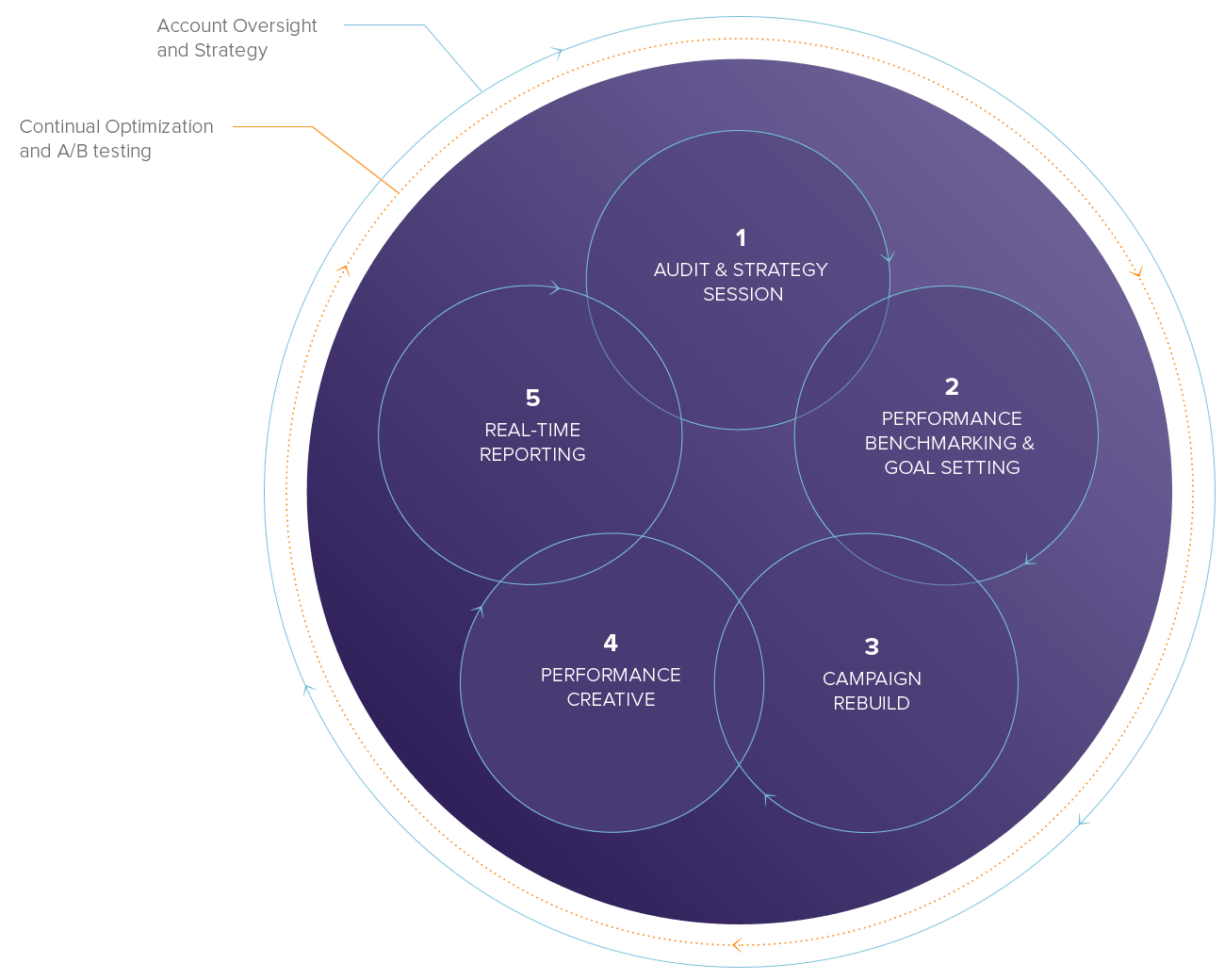Pay-Per-Click Keyword Types – A Beginner’s Guide
 Launching a new Pay-Per-Click advertising account on Google AdWords (or Bing) is fraught with peril, if only because of the sheer multitude of keyword matching options. A common beginner’s mistake is to launch a campaign with a slew of broad terms that represent your product or service. While this broad-based approach might seem like an appealing way to maximize your presence in Google Search, it can end up being a very costly experience, and one which might discourage you from ever running paid ads again!
Launching a new Pay-Per-Click advertising account on Google AdWords (or Bing) is fraught with peril, if only because of the sheer multitude of keyword matching options. A common beginner’s mistake is to launch a campaign with a slew of broad terms that represent your product or service. While this broad-based approach might seem like an appealing way to maximize your presence in Google Search, it can end up being a very costly experience, and one which might discourage you from ever running paid ads again!
Google AdWords has 5 keyword match types, ranging from an “exact match” approach to a “broad” one, that I’ll discuss in this post. A smart and effective PPC strategy uses 1 or more of these match types to drive clicks, leads, and orders.
[Tweet “PPC Guide: Don’t get overwhelmed with keyword matching options.”]Exact Match
Exact Match keywords are simply that: your ads will trigger for only the exact variation of the term. These keywords are implemented with brackets surrounding them, and yield no variations whatsoever. Usage of these terms is especially valuable when a term is either a) extremely expensive on a cost per click basis, or b) when a term is particularly voluminous in terms of search volume, and can lead to an exhaustion of your daily budget were you to use a Broad or Phrase Match type for it.
Usage of this match type could be useful, for example, if you wanted to show your ad for a very high volume term such as “non profit.” This is a very broad topic and can refer to specific companies, people simply looking for how to launch a non-profit, people looking to fundraise for their non-profit, or any of a dozen additional things. Therefore, targeting the Exact Match phrase “non-profits” can be a way to bring your ad good exposure, yet limit your ad from showing for potentially irrelevant variations.
Broad Match
Broad Match keywords are specified “as is,” with no formatting or structural inclusions. PPC ads will show on searches that include misspellings, synonyms, related searches, and other relevant variations of the broad match phrase you target (see Fig.1).

Figure 1: These Broad Match search phrases will trigger your PPC ads for a wide range of variations. For example, a search for “power tools suppliers in New York” will trigger your ad if you have specified “power tools” as a Broad Match keyword in your campaign.
It’s important to realize that targeting a broad keyword term or phrase will trigger your ads to show for many, many variations of that phrase (see Fig. 2).

Figure 2: This is an example of Broad Match keyword, triggering our ad for the keyword, “non-profit fundraising.”
It’s a very common mistake to create an AdWords campaign and fill it with broad terms in the hopes that your ads will reach a wide audience. But when you dig deeper, you will often find many undesirable, irrelevant variations that ended up triggering your ad (see Fig. 3).

Figure 3: This list of terms includes keywords that triggered our ads because of our use of the Broad Match keyword phrase, “talking watches for the blind.” As you can see, there were several good variations that triggered our ads, but a few undesirable ones, as well. The danger of using Broad Match is the irrelevant variations it could yield.
Broad Match Modifier
Basically, the only difference between Broad Match and Broad Match Modifier (BMM) is that your BMM keyword will contain a “+” symbol and your ad won’t get triggered for synonyms. This can limit the additional variations that trigger your ads, helping to keep down your costs, while limiting potential irrelevancy (see Fig. 4).

Figure 4: In this example, the Broad Match Modifier keyword is +snow +joe and it triggers these variations. You will see that the variations that triggered our ads are a little tighter and limited irrelevancy.
Phrase Match
Phrase Match keywords contain quotes and trigger ads when that exact phrase and/or a close variation is searched. This is a further way to reduce cost and irrelevancy. Whereas Broad Match and Broad Match Modifiers aim to maximize your exposure for a phrase, Phrase Match aims to narrow the reach by making sure your ad is triggered for a much more specific set of variations (see Fig. 5).

Figure 5: This list of terms includes variations of the Phrase Match keyword, “fire pits.” As you can see, the variations that trigger the ads each have some very close variation of “fire pits,” helping to reduce irrelevancy.
A balanced approach to keyword targeting should include a heavy dose of Phrase Match keyword usage.
Negative Match
This final keyword matching type is especially important for campaigns that include Broad Match, Broad Match Modifier, and Phrase Match keyword variations. By specifying a negative keyword, you are telling Google not to show your ads if a particular word or phrase is included within a user’s search phrase.
The best approach to take when it comes to negative terms is to specify a list of very general terms that you are comfortable applying account-wide. For example:
- Free
- Job
- Jobs
- Career
- How-to
- Diy
- Do it yourself
This ensures that even if you are using a Phrase or Broad Match keyword, that your ad won’t trigger if 1 of these words is included in the user’s search.
Secondly, applying more specific negative keywords on a campaign by campaign basis can make sure that you limit exposure on undesirable terms in 1 area of your account, but not account-wide. An example would be if you want to make sure a keyword phrase that includes “hands-free” appears for 1 group of keywords, but not another, specify “free” as a negative keyword only in the campaign where there are non hands-free products.












